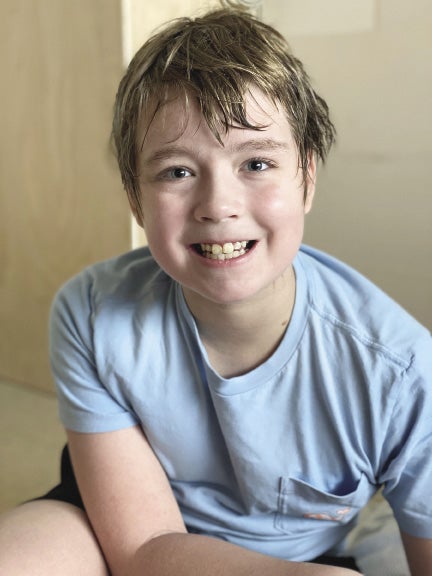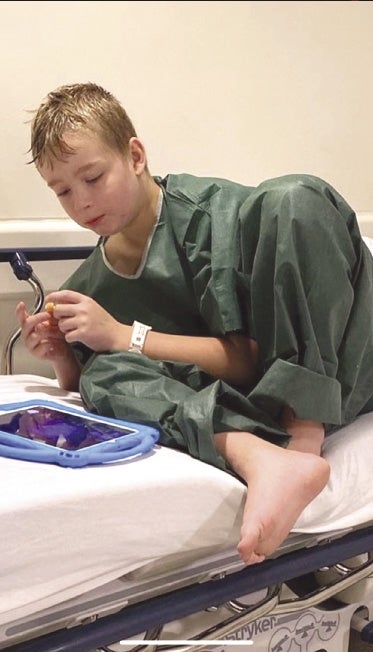It’s easy to discuss problems like mental healthcare shortages in abstract terms, looking at funding dollars, available beds, and impacted patients; but all those numbers are personal to many, many people. WBJ Editor Brad Kane opens up on the number most personal to him.
Get Instant Access to This Article
Subscribe to Worcester Business Journal and get immediate access to all of our subscriber-only content and much more.
- Critical Central Massachusetts business news updated daily.
- Immediate access to all subscriber-only content on our website.
- Bi-weekly print or digital editions of our award-winning publication.
- Special bonus issues like the WBJ Book of Lists.
- Exclusive ticket prize draws for our in-person events.
Click here to purchase a paywall bypass link for this article.
Since late July, my and my family’s lives have been a special kind of hell, as we are entangled in the patchwork and overburdened system of New England behavioral health care. My oldest son, 12-year-old Desmond, has been in crisis at Boston Children’s Hospital, waiting for a bed at an inpatient treatment facility on what is expected to be a months-long, or even year-long, waitlist. This situation has been awful for my wife and five children, most especially Desmond.

In October, when Senior Staff Writer Monica Benevides first pitched the idea of covering how the Central Massachusetts behavioral health bed shortage had been impacted by the COVID pandemic, neither of us had any idea how the article would turn out. Yet, when I read her first draft of the story “Addressing the behavioral health crisis” all I could think of was Desmond. Monica ended up focusing on the increasingly problematic number of people waiting in emergency rooms for behavioral beds, which is the exact situation Desmond has been in. WBJ is a business journal, so numbers are basically a prerequisite for all our stories, but when Monica wrote 501 people were waiting in Massachusetts emergency rooms for behavioral health beds, I thought, “Yep, Desmond is one of those 501.” His is the face behind that number; the same face I’d seen nearly every day of his entire life, until July anyway.
In the year after the pandemic started, Desmond had weeks-long stints at two inpatient pediatric behavioral hospitals in New England, both of questionable quality. On July 26, it became clear to my wife and me that we could no longer keep Desmond safely at home, so we decided for the first time to have him wait in crisis at a hospital until an inpatient bed opened up, with us choosing Boston Children’s Hospital because his neurologist and psychiatrist are there. Aside from a failed attempt for a week in October to have him come home, Desmond has been at BCH ever since.
He has spent nearly all that time in a small hospital room, with the occasional short walk around the hallways. He typically only takes baths when my wife, Sarah, or I are there. He can no longer have iPads, smartphones, or a TV and only a limited number of toys. He wears headphones constantly while two noise machines try to drown out the hospital alarms sending him into a frenetic state. His doctors try different treatments and medications, and some all-star nurses keep him engaged; but he is regressing. His self-injurious behavior is increasing.
A few weeks ago, Sarah and I made the heartbreaking decision to begin the search for a residential behavioral treatment school, knowing Desmond may never again come home, where his bedroom painted in a Toy Story theme sits unused and his siblings wonder if their brother will be home for Christmas. Much like the search for an inpatient treatment bed, the wait for a residential school is impossibly long, as hundreds of children and their families hope for open slots at facilities facing funding and staffing shortages.
The situation is putting an overbearing strain on Sarah and me, as we try to balance caring for our four other children – three of whom, like Desmond, are diagnosed with autism spectrum disorder – and staying with Desmond at BCH as much as possible. Most weekdays, Sarah or I spend five to six hours in the car, wracking up a dizzying amount of credit card charges on fuel, tolls, and food. Weekends are split between long visits to the hospital and trying to find a sense of normalcy for our family. In August, Sarah got rear-ended in a car accident on the Mass Pike, sending her and our youngest daughter’s to their own stints in the emergency room.
This entire crisis seemingly has no end.
And Desmond is one of 501. It’s easy to discuss problems like mental healthcare shortages in abstract terms, looking at funding dollars, available beds, and impacted patients; but all those numbers are personal to many, many people. I barely have any grasp on solutions to the one problem of Desmond. Knowing how many more just like him are out there makes this a full-blown crisis.

